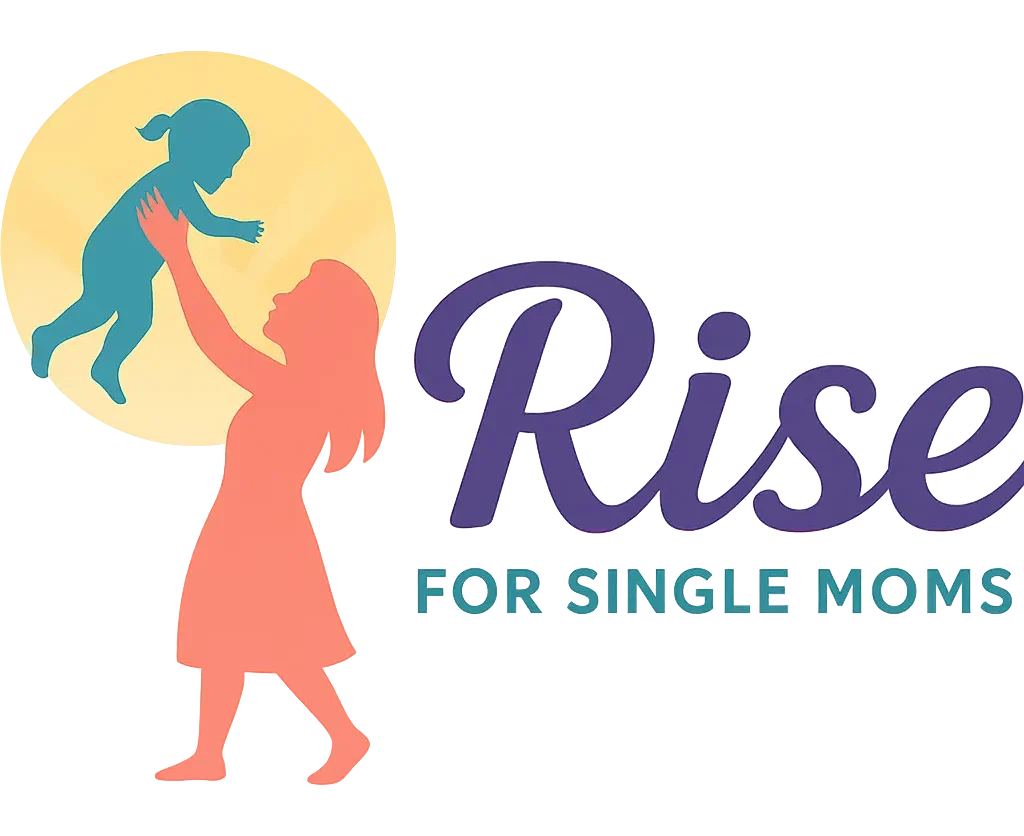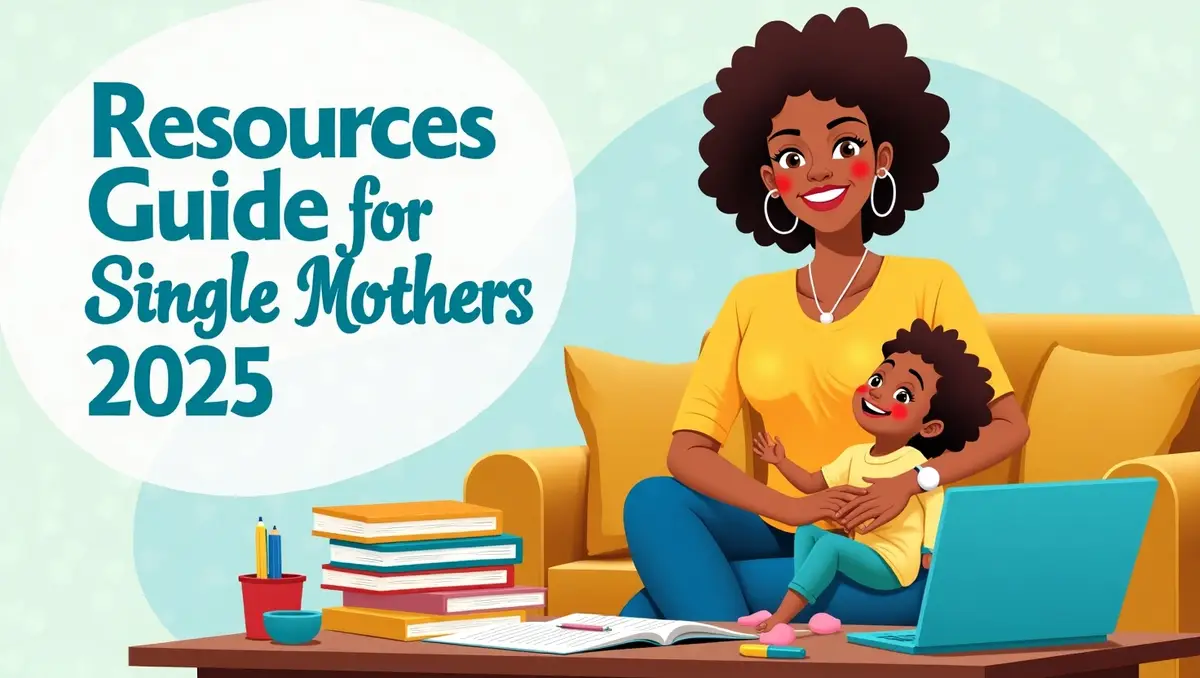First-Time Home Buyer Grants for Single Mothers in 2025
Have you ever found yourself lying awake at night, wondering if you’ll ever have a place to call your own? A home where your kids can grow up safely, where the walls hold love and not just struggle?
If you’re a single mom dreaming of that first home, I see you. I’ve walked in your shoes. And I want you to know: there is real help available in 2025—grants designed specifically to support single mothers like us in buying our first home.
Let me walk you through it, heart to heart.

Table of Contents
Why This Matters to Me (And to You)
For so long, I believed homeownership for a single mother was something that only happened to other people—those with two incomes, perfect credit, or a strong support system. As a single mom raising my daughter, I was working two jobs just to afford income-based housing and keep up with rent. The idea of figuring out how to buy a house with no money felt impossible.
But I was determined to give her a stable place to grow up. And what I discovered changed everything.
There are grants and programs in 2025—some federal, some state, some nonprofit—that are designed to help single moms become homeowners, even with modest income or less-than-perfect credit.
I wish someone had told me sooner. So I’m telling you now.
What Are First-Time Housing Grants For Single Mothers?
In simple terms, a home buyer grant is money you don’t have to pay back. Unlike a loan, it’s meant to help you, not burden you. These grants can help with:
- Down payments
- Closing costs
- Lowering your monthly mortgage
- Sometimes even renovations
You don’t need to have thousands saved up or a flawless credit score. What you do need is knowledge of what’s available and how to apply.
📋 Understanding Eligibility: Are You Qualified?
Eligibility criteria can vary, but common requirements include:
- Income Limits: Many programs have income caps based on your household size and area median income.
- Credit Score: A minimum credit score is often required, typically around 640. While this may seem daunting, there are programs designed for those with less-than-perfect credit.
- First-Time Buyer Status: Most grants are for individuals who haven’t owned a home in the past three years, but some exceptions exist for displaced homeowners or those in certain situations.
- Primary Residence: The property you purchase must be your primary residence, not an investment property or vacation home.
- Completion of Homebuyer Education: Many programs require you to attend a HUD-approved homebuyer education course to help you understand the homebuying process, your mortgage options, and budgeting.
🗺️ State-Specific Programs: Tailored Assistance

Several states offer programs specifically designed for first-time homebuyers, including single mothers. These programs can provide much-needed down payment assistance, closing cost help, and low-interest loans:
California: CalHFA MyHome Assistance Program
Administered by the California Housing Finance Agency (CalHFA), the MyHome Assistance Program offers up to 3.5% of the home’s purchase price or appraised value in deferred-payment down payment assistance. It’s available to first-time homebuyers using a CalHFA first mortgage, and funds can be applied to both down payments and closing costs.
- Eligibility: First-time homebuyers, minimum credit score of 640, income limits apply.
- Source: CalHFA Official Website
Texas: Texas State Affordable Housing Corporation (TSAHC)
TSAHC offers two main programs: Homes for Texas Heroes (for educators, police officers, and veterans) and Home Sweet Texas for general homebuyers. Both include down payment assistance (DPA) as a grant or deferred forgivable second lien loan, plus fixed low-interest mortgage options.
- Benefits: No repayment required on grant-based DPA; flexible loan terms.
- Eligibility: Must meet income and purchase price limits.
- Source: TSAHC.org
Florida: Florida Housing First Time Homebuyer Program
Florida Housing Finance Corporation’s First Time Homebuyer Program provides 30-year, fixed-rate mortgages with optional DPA of up to $10,000 in the form of a 0%, deferred second mortgage.
- Uses: Funds can be used for down payment or closing costs.
- Eligibility: First-time buyers or those who haven’t owned in the past 3 years.
- Source: FloridaHousing.org
Georgia: Georgia Dream Homeownership Program
The Georgia Dream program provides up to $10,000 in down payment assistance for eligible buyers. For certain groups like public servants, the assistance can be as high as $12,500 through the “PEN” (Protectors, Educators, and Nurses) or “CHOICE” options.
- Loan Type: 0% interest second mortgage, due upon sale or refinance.
- Source: Georgia Department of Community Affairs
Michigan: MSHDA First-Time Homebuyer Program
The Michigan State Housing Development Authority (MSHDA) offers DPA of up to $10,000, coupled with 30-year fixed-rate mortgages and below-market interest rates.
- Perks: No monthly payments on DPA; repayable only when selling or refinancing.
- Income Limits: Vary by county and family size.
- Source: MSHDA Official Site
Illinois: IHDA Access Forgivable Program
The Illinois Housing Development Authority’s Access Forgivable Program offers up to $10,000 in forgivable DPA over 10 years. If you stay in the home for the full term, repayment is completely waived.
- Additional Options: IHDA Access Deferred and IHDA Access Repayable.
- Ideal For: Buyers seeking long-term residence and low out-of-pocket costs.
- Source: IHDAmortgage.org
New York: SONYMA Achieving the Dream Program
The State of New York Mortgage Agency (SONYMA) offers the Achieving the Dream program for low- and moderate-income buyers, featuring below-market interest rates and down payment assistance loans (DPAL) up to 3% of the home price.
- Terms: DPAL may be forgivable if conditions are met.
- Eligibility: Must occupy the home as a primary residence.
- Source: SONYMA
North Carolina: NC Home Advantage Mortgage
The NC Housing Finance Agency offers down payment assistance up to $15,000 for first-time and move-up buyers through its NC Home Advantage Mortgage Program. DPA is provided as a 0% interest, deferred second mortgage, forgiven after 15 years.
- Loan Feature: 5-year minimum occupancy requirement for forgiveness.
- Ideal for: Buyers planning long-term homeownership in NC.
- Source: NCHFA.com
Pennsylvania: First Front Door Program (FFD)
Managed by FHLBank Pittsburgh, the First Front Door Program offers 3-to-1 matching grants—for every $1 a homebuyer contributes, the program provides $3, up to $5,000 in assistance.
- Requirements: Must use an FFD-approved lender and complete homebuyer education.
- Target Audience: Low- to moderate-income buyers.
- Source: First Front Door
Colorado: CHFA Homebuyer Assistance Program
The Colorado Housing and Finance Authority (CHFA) provides down payment and closing cost assistance in the form of a grant (not repayable) or a second mortgage loan, with support of up to 4% of the first mortgage.
- Perks: Flexible loan types and terms; educational support provided.
- Eligibility: Minimum credit score of 620, income and purchase price caps apply.
- Source: CHFAinfo.com
Utah: Utah Housing Corporation FirstHome Loan Program
The Utah Housing Corporation (UHC) offers several programs for first-time and low-to-moderate income homebuyers, with the FirstHome Loan being one of the most popular. This program provides down payment and closing cost assistance through a second mortgage, which can cover up to 6% of the primary loan amount.
- Unique Benefit: UHC allows borrowers to finance both the down payment and closing costs, which is especially helpful in Utah’s competitive housing market.
- Who Qualifies: First-time homebuyers with a minimum credit score of 660 and income limits based on household size.
- Additional Help: UHC also offers HomeAgain and Score programs for repeat buyers or those with lower credit scores.
- Education Requirement: Mandatory homebuyer education course.
- Source: Utah Housing Corporation
📝 Step-by-Step Guide: How to Apply

Applying for first-time home buyer grants might seem overwhelming, but breaking it down into manageable steps can make the process smoother:
- Research Available Programs: Visit your state’s housing authority website to find programs you may qualify for. Local community organizations may also have up-to-date information.
- Gather Necessary Documentation: Prepare documents such as proof of income, tax returns, credit reports, and identification.
- Complete a Homebuyer Education Course: Enroll in a HUD-approved course to understand the homebuying process, mortgage options, and financial management.
- Apply for Assistance: Submit applications to the programs you’re eligible for, ensuring all information is accurate and complete.
- Work with a Lender: Choose a lender who is experienced with first-time homebuyer programs to guide you through the mortgage process.
Federal and National Programs for Single Moms in 2025
1. HUD’s HOME Investment Partnerships Program
What it is: A federal program offering grants to states and local governments to help low-income individuals buy homes.
How it helps: Local programs may offer down payment assistance or forgivable loans.
2. The National Homebuyers Fund (NHF)
Benefit: Up to 5% of the home’s purchase price as a non-repayable grant for down payment or closing costs.
3. USDA Single Family Housing Direct Loans
Ideal for: Low-income single moms in rural areas. Offers 0% down payment options and subsidized interest rates.
4. Habitat for Humanity
How it helps: Affordable homes built with volunteer support. You’ll invest “sweat equity” instead of cash.
🔗 Find local Habitat affiliates
My Story: From Section 8 to a Place We Could Call Ours
I’ll never forget the day I got the keys.
It had taken months of saving, applying, and reapplying. I used a local housing grant in Georgia that gave me $7,500 toward my down payment. I also worked with a nonprofit that offered credit counseling and helped me understand what lenders were looking for.
I was scared—terrified, really. But I kept thinking of my daughter. I wanted her to feel grounded, safe, home.
Now, every time she draws a picture of our house, she draws us smiling on the porch. That’s something no apartment ever gave us.
You can have this too.
What You Can Do Right Now (Yes, Today)

If this feels overwhelming, take a deep breath. You don’t have to figure it all out today. Just start with one step. Here’s what I’d do if I were sitting beside you:
1. Check Your State and Local Grants
Go to HUD’s Local Resources and search your city or county. See what down payment help exists.
2. Talk to a Housing Counselor
These are free, HUD-approved professionals who can walk you through the process without pressure.
3. Start Working on Credit (If Needed)
You don’t need perfect credit, but improving it helps. Start by checking your free credit report and disputing errors.
4. Save a Little Each Month
Even $25 a paycheck into a separate home fund helps. Some programs even match what you save.
5. Ask for Help—It’s OK
Reach out to local nonprofits, family resource centers, or even your church. You’re not alone, even if it sometimes feels that way.
🤝 Combining Programs: Maximizing Your Benefits

Many single mothers find success by combining multiple programs to maximize their benefits. For example:
- Down Payment Assistance: Utilize state or local grants to cover upfront costs.
- Low-Interest Loans: Apply for FHA, USDA, or VA loans for favorable mortgage terms.
- Employer Assistance: Some employers offer homebuyer assistance as part of their benefits package. Don’t forget to ask your HR department!
By stacking these programs, you can reduce the financial burden and make homeownership more attainable.
🛠️ Post-Purchase Support: You’re Not Alone
The support doesn’t stop once you’ve purchased your home. There are resources available to help you maintain your home and stay on track financially:
- Financial Counseling: Nonprofits and housing authorities offer budgeting and credit counseling to help you manage your finances post-purchase.
- Home Maintenance Assistance: Some programs provide resources for home repairs and maintenance, ensuring your home remains in good condition.
- Community Resources: Engaging with local community centers for support and networking opportunities can provide valuable emotional and practical resources.
💪 Real-Life Story: From Struggle to Stability
Meet Sarah, a single mother of two from Michigan. Facing high rent and limited options, she discovered the MSHDA First-Time Homebuyer Program. With down payment assistance and a low-interest loan, Sarah was able to purchase a home within six months. Today, she enjoys the stability and pride of homeownership, providing a secure environment for her children.
Her story isn’t unique. There are countless single mothers who’ve walked a similar path and now thrive in their own homes. If Sarah can do it, so can you.
You’re Not Just Buying a House. You’re Building a Life.
I know this journey is hard. I’ve cried in my car after another rent increase. I’ve felt ashamed when my child asked why we moved again. I’ve questioned whether I was doing enough.
But homeownership gave me something deeper than a roof—it gave me roots.
If no one else has told you this today, hear it from me:
You are worthy of a safe, stable home. You are doing an amazing job. And you have every right to dream.
And more than that, you have the right to achieve.
Final Thoughts: Let’s Make This Your Year
2025 can be the year you take a bold step forward—not because you’re not scared, but because you’re braver than the fear. First-time home buyer grants for single mothers are real, and they’re waiting for you to take the first step.
So, go ahead. Bookmark this. Come back to it. Share it with another mama. And when you’re ready, take that first little step toward your future home.
Frequently Asked Questions (FAQ)
There are several grants available specifically for single mothers. Some of the most helpful ones include:
- Temporary Assistance for Needy Families (TANF): Provides cash assistance for low-income families.
- Women, Infants, and Children (WIC): A program to support pregnant women and mothers with children under 5 years old.
- Head Start: Offers early childhood education and other family support services for low-income families.
Additionally, check with local nonprofits and state programs to find more opportunities specific to your area.
The application process for financial assistance typically involves the following steps:
- Research available programs and check eligibility requirements.
- Gather necessary documents such as proof of income, residency, and family size.
- Submit your application either online or through your local government office.
Make sure to follow up regularly to check on the status of your application.
Yes! There are many free resources designed to help single mothers with parenting:
- Parenting classes: Many local organizations offer free classes or workshops for single parents.
- Support groups: Both in-person and online support groups can provide valuable emotional support and parenting advice.
- Local charities: Many charities offer parenting assistance and resources for single mothers.
These resources can help you feel more supported as you navigate the challenges of single parenthood.
Balancing work and parenting as a single mom requires finding the right strategies that work for you:
- Time management: Set a schedule that prioritizes your most important tasks.
- Delegate tasks: Don’t be afraid to ask for help from family or friends when needed.
- Self-care: Make sure to schedule time for yourself to recharge.
By staying organized and asking for support when needed, you can successfully manage both your work and parenting responsibilities.
Managing your finances effectively can be challenging, but here are some helpful tips:
- Set a budget: Track your income and expenses to help you manage your money better.
- Save for emergencies: Set aside a small amount each month for unexpected expenses.
- Seek financial counseling: Many nonprofits offer free or low-cost financial advice for single moms.
Taking small, consistent steps towards better money management can make a big difference in your financial future.
Yes! There are programs that can assist with child care costs:
- Child Care and Development Fund (CCDF): Helps low-income families with child care costs.
- State-specific child care subsidies: Some states have programs that provide child care assistance for working parents.
Check with local child care providers or state agencies to see what options are available in your area.
Saving money can be difficult, but these strategies can help:
- Shop smart: Look for discounts, buy in bulk, and use coupons.
- Set savings goals: Start small and gradually build up your savings over time.
- Reduce unnecessary expenses: Cut back on non-essential items to free up more money for savings.
Even small savings can add up over time, helping you build a stronger financial foundation for your family.
Staying motivated is important for reaching your financial goals. Here are a few tips:
- Set clear goals: Break down your long-term goals into smaller, achievable steps.
- Celebrate small wins: Reward yourself for reaching milestones, even if they’re small.
- Stay positive: Remind yourself of how far you’ve come and the progress you’re making.
Stay focused on your vision and remember that every step forward counts!
Yes, there are programs available to help single mothers with housing:
- Section 8 Housing: Offers rental assistance for low-income families.
- Public Housing Assistance: Local housing authorities may offer affordable housing options for eligible families.
Contact your local housing authority to learn more about eligibility and application procedures.
If you feel overwhelmed, take a deep breath and remember that you’re not alone. Here’s what you can do:
- Reach out for support: Whether it’s a family member, friend, or counselor, don’t hesitate to ask for help.
- Focus on small steps: Take one small action at a time to improve your situation.
- Stay positive: Keep reminding yourself of your strengths and resilience. You’ve already come so far!
Even small steps can help you regain control of your finances and feel more confident.







7 Comments